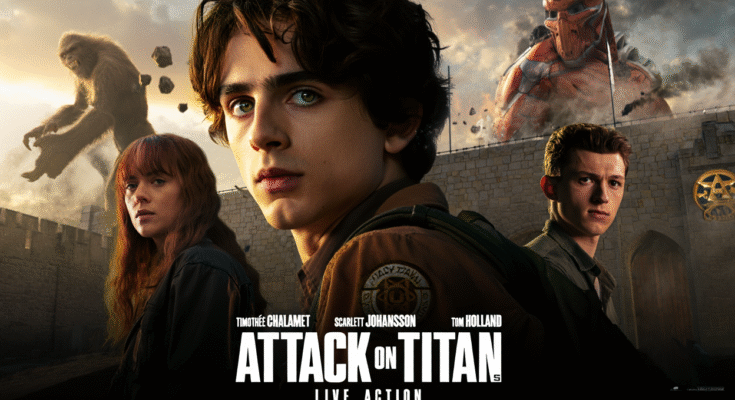
There are few anime series as monumental and culturally seismic as Attack on Titan. Its towering Titans, labyrinthine mythology, and profound meditations on freedom and survival have earned it a place in the pantheon of modern storytelling. Adapting such a colossal saga into live action is not just a challenge — it’s a gamble of cinematic proportions. And yet, with Attack on Titan (2025), Hollywood dares to scale those walls.
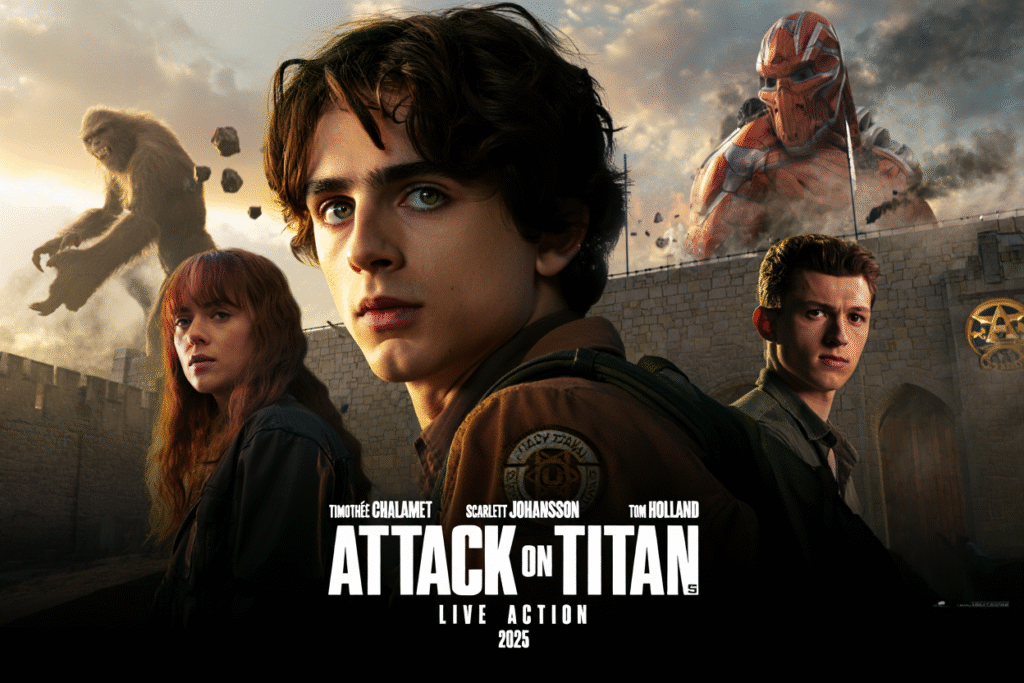
From its opening shot, the film radiates grandeur. The towering stone walls, weathered by centuries yet fragile against what lurks beyond, dominate the frame. Director’s vision is clear: the human settlements are prisons disguised as sanctuaries, fragile against the terrifying immensity of the Titans. As the first breach unfolds, the sheer scale of destruction is staggering — a brutal reminder that in this world, humanity is little more than prey.
Timothée Chalamet’s Eren Yeager captures the volatile essence of a character consumed by grief, rage, and a desperate thirst for freedom. Chalamet leans into the character’s contradictions, making Eren both sympathetic and unsettling, a dreamer with the fire of a revolutionary and the recklessness of a doomed soul. His performance anchors the story’s moral chaos.
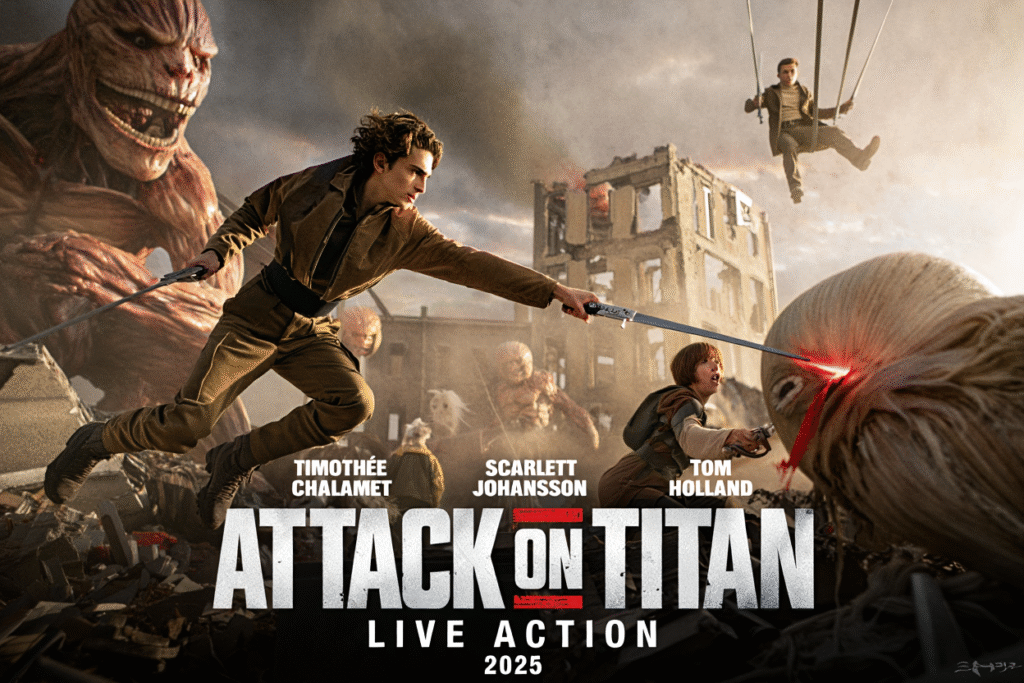
Scarlett Johansson, cast against type, steps into the role of humanity’s hardened protector. Her portrayal adds gravitas to the adaptation, embodying the cold discipline of a soldier who carries the unbearable burden of defending a crumbling world. She isn’t simply an action hero — she’s the weary, haunted figure of someone who has seen too many battles, too many lives lost.
Then comes Tom Holland, whose conflicted warrior balances the ensemble. Holland brings both vulnerability and resolve, portraying a man torn between the safety of obedience and the terror of resistance. His quiet moments lend heart to the film, grounding its bombastic spectacle with flashes of deeply human emotion.
Visually, the film is nothing short of breathtaking. The Titans themselves are nightmarish, rendered with grotesque realism — their lumbering movements evoke dread, their distorted forms a chilling echo of humanity’s own image. The 3D Maneuver Gear sequences deliver adrenaline in spades, the camera swooping alongside soldiers as they zip through collapsing streets, blades flashing against impossible odds. It is kinetic, visceral cinema at its finest.
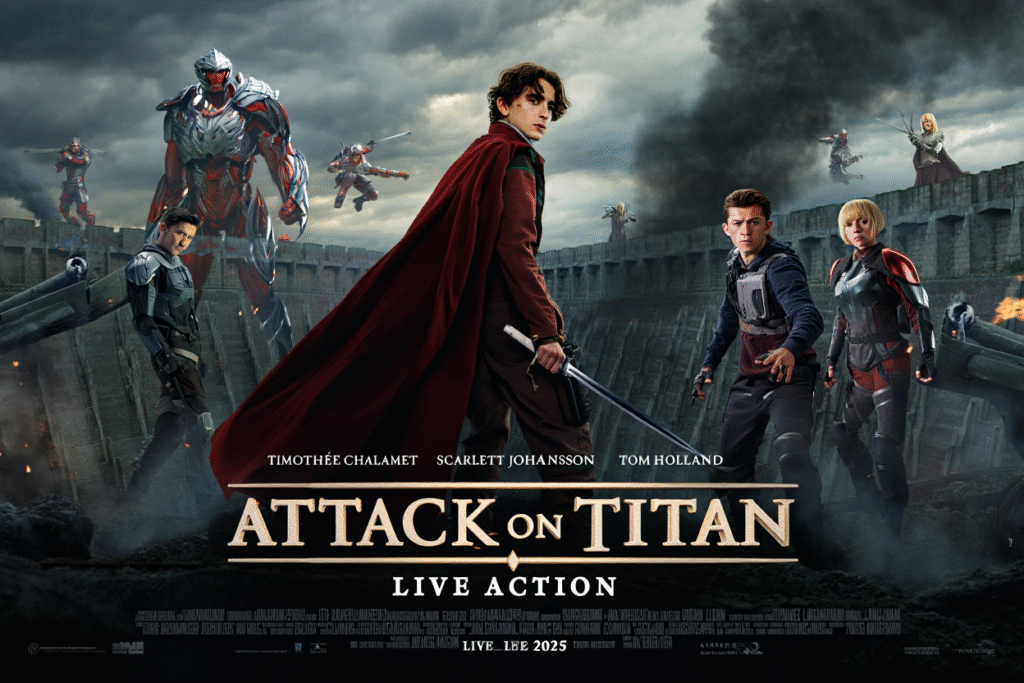
But what elevates Attack on Titan (2025) beyond spectacle is its willingness to wrestle with the story’s heavier themes. The script does not shy away from asking: what does freedom cost? What sacrifices are justified in the name of survival? The moral lines blur as characters are forced to choose between loyalty to their comrades and the haunting possibility of a life beyond the walls.
The pacing walks a tightrope between frenetic battles and tense, intimate dialogues. One moment we are watching the thunderous collapse of humanity’s defenses, and the next, hushed conversations that lay bare the characters’ fears and ambitions. This balance is vital, reminding us that Attack on Titan is as much about the wars within as the monsters without.
The score swells with operatic intensity, echoing the anime’s iconic sound while layering in darker, more orchestral undertones. Combined with the oppressive sound design — the booming steps of Titans, the crack of stone as walls shatter — it immerses audiences in a world perpetually on the edge of annihilation.
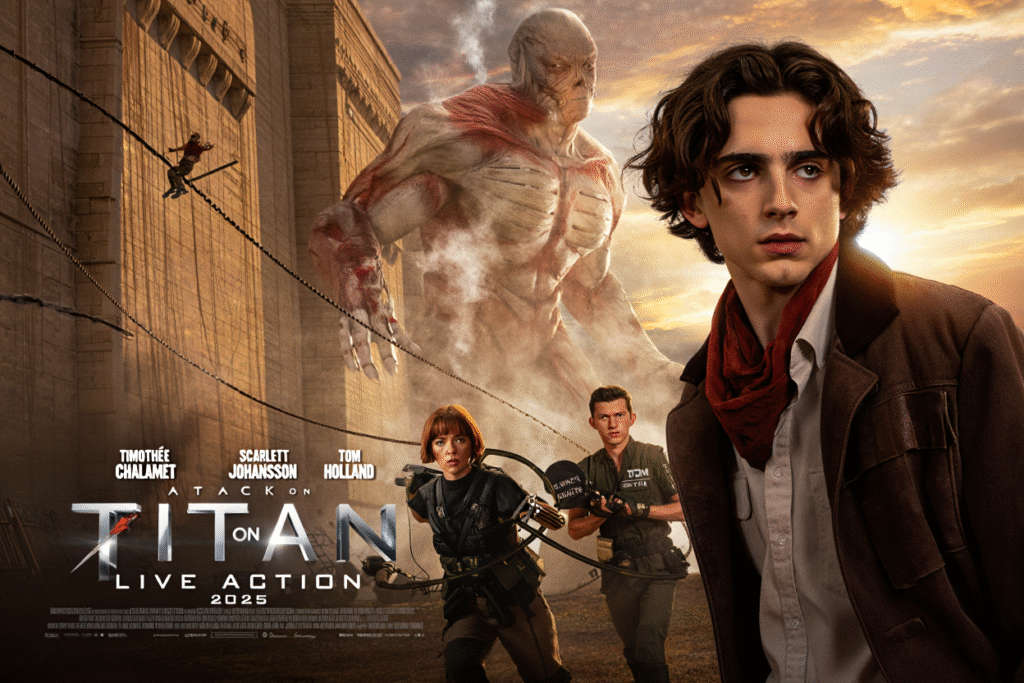
For longtime fans, the adaptation honors the spirit of the source material without slavish imitation. Some arcs are compressed, some relationships restructured, but the core remains intact: humanity’s desperate, bloody struggle for freedom. For newcomers, the film stands tall as a mythic tale of survival and sacrifice, a story that transcends genre and origin.
In the end, Attack on Titan (2025) is not merely a live-action remake. It is a cinematic reimagining that dares to match the anime’s ambition with its own, bringing colossal scale and emotional weight to the big screen. Harrowing, spectacular, and unflinching, it is a battle cry for freedom — and a reminder that sometimes the greatest monsters are not the Titans, but the truths we refuse to face.